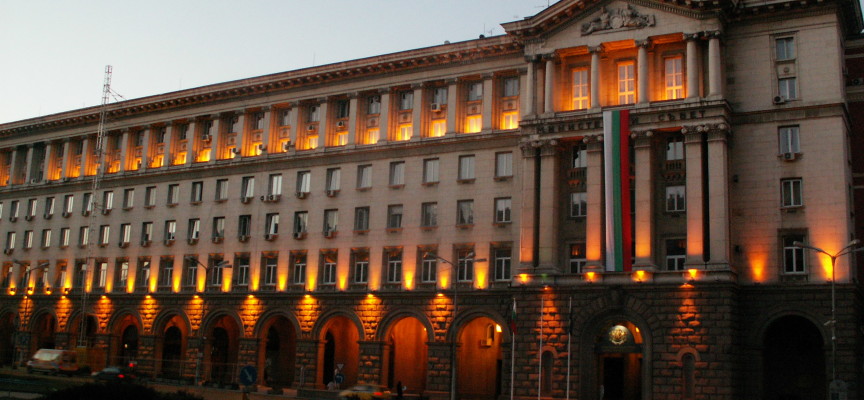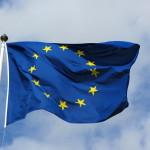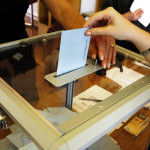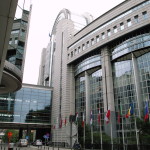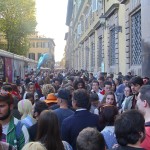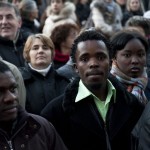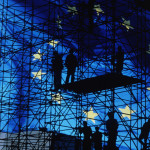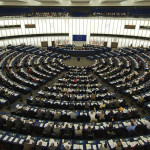After the tormented years of Communism and of the transition towards the capitalist system the target of entering Europe has been the most important goal to reach for Bulgarians: it had united the population and awakened the desire and real hope for a better future. Europe meant for Sofia not only entering the club of big nations, but also adhering to the rules and values on which the European Union is based, with the supremacy of human rights and laws, the freedom both of thought and of religion, as well as private property.
With time passing, however, the European enthusiasm has begun to weaken, also because no quick transformation had developed, as many Bulgarians had hoped it would happen. Our politicians as well haven’t been able to set new accomplishments to the nation and to make people sure that the European path, even if long, hasn’t finished joining the Union in 2007, and that it will lead to the desired wealth and to the changes necessary to guarantee a steady and safe future for the nation.
In this sense, the messages which have come from several representatives of the European institutions and politicians of the old continent who pointed the finger at Bulgaria have often been not encouraging. They were sometimes valid and well-founded, but often also completely false, as in the case of Nigel Farage, leader of the United Kingdom Independence Party, who required the British job market to be closed to the Bulgarians, accusing them of benefitting only from London social services.
However, all things considered, the positive sides of entering Europe prevail: the opportunity to travel, study and work freely, the enormous advantages for economy thanks to the common market, the certainty that whoever comes to power will not change course of action and will have to respect the rules valid for all nation members.
Recently Europe has appeared able to impose rules but not to offer solutions. This is confirmed also by the present Ukraine crisis and by the proposal of economic restrictions towards Russia. To Bulgaria, the poorest of the 27 members, cutting short with Moscow would mean serious economic losses, above all because the nation is completely dependent on Russian gas supplies and does not have any alternative sources of energy available. In addition, most of the tourist on the Black Sea come from Russia.
With the European elections gradually approaching, the debate in Bulgarian society once again is about internal trifles, which leave aside the more serious matters linked to the European Union.
While the European Union, urged by the economic crisis, is thinking over its identity and future, Bulgaria must take the opportunity to participate in this debate reaffirming its priorities, and to appreciate what it has already achieved. It’s no coincidence that the nearby nations in the West Balkans (Serbia, Macedonia, Montenegro, Albania) look at Sofia enviously. For them the European dream is only beginning.
За българите да станат част от ЕС беше заветната цел, която обедини нацията с надежда за по-добри дни на благоденствие след дългите години комунизъм и мъчителния преход. Европа обаче не означаваше само да влезем в клуба на големите и богатите страни, а и да приемем основните ценности, върху които се базира съюзът и най-вече първенството на човешките права, на закона, на свободата, тази на мисълта, както и свободата на вероизповедание и зачитането на неприкосновената частна собственост.
С течение на времето, европейският ентусиазъм започна да намалява. Може би защото светкавичните промени, които очакваха мнозина, не се случиха. Принос за това имат и българските политици, които не успяха да поставят нови цели, за да обединят нацията и да уверят хората, че макар и дълъг, едва започналият с влизането в ЕС през 2007 г път, в края на краищата ще доведе до жадуваното благоденствие и до нужните промени, които ще гарантират сигурен и стабилен напредък на България. Затова не бяха никак окуражаващи и реакциите на различни представители на европейските институции, както и на някои политици от Стария континент. Те обвиняваха България, често основателно, но нерядко и с неверни твърдения като Найджъл Фарадж, лидер на Партията на независимостта на Обединеното кралство. (Той искаше затваряне на пазара на труда във Великобритания за българи, защото ползвали само социални помощи).
Теглейки чертата, със сигурност положителните страни от влизането в ЕС надделяват: възможността да се пътува , учи и работи свободно, огромните предимства пред икономиката благодарение на общия пазар, сигурността, че който и да дойде на власт няма да промени курса и ще бъде длъжен да спазва европейските правила.
Напоследък обаче сме свидетели на един Европейски съюз, който налага правила, но често не е способен да предлага решения. Потвърждава го и продължаващата криза в Украйна и идеята за икономически санкции спрямо Русия. За България, като най-бедната страна членка, едно рязко скъсване на отношенията с Москва би причинило сериозни икономически загуби. Страната е изцяло зависима от доставките на руски газ и не разполага с алтернативни източници. Голяма част от туристите по Черноморието също са руснаци.
С наближаването на европейските избори, темите в българското общество за пореден път се въртят около вътрешните противоречия, за сметка на важните въпроси, свързани с Европейския съюз. Докато Европа, притисната от кризата, търси своята идентичност и посока, България трябва да се възползва от момента и да стане активен участник с позиция в този дебат. Ние би трябвало да представим своите приоритети и да оценим онова, което вече сме постигнали. Неслучайно нашите западни съседи: Сърбия, Македония, Черна гора,Албания, гледат със завист към София. За тях европейската мечта тепърва започва.
Vista da Sofia
Il traguardo europeo è stato per i bulgari lo scopo più grande che aveva unito la popolazione, risvegliando l’anelito e la speranza concreta di un futuro migliore possibile dopo gli anni travagliati del comunismo e della transizione verso il sistema capitalista. L’Europa per Sofia significava non solo entrare nel club dei Paesi grandi, ma anche aderire alle regole e ai valori su cui si basa l’Unione europea con il primato dei diritti umani e della legge, la libertà – anche di pensiero e religiosa – e la proprietà privata. Con il passare del tempo, però, l’entusiasmo europeo ha iniziato a spegnersi anche perché non si è avverata una trasformazione veloce come, illusi, speravano molti bulgari. Anche i nostri politici non sono stati capaci di porre dei nuovi traguardi di fronte al Paese e assicurare le persone che, anche se lungo, il cammino europeo che non è finito con l’entrata della Bulgaria nell’Ue nel 2007, porterà al benessere anelato e ai cambiamenti necessari per garantire un futuro stabile e sicuro per la nazione.
In questo senso, spesso non sono stati incoraggianti neanche i segnali di diversi esponenti delle istituzioni europee e di molti politici del Vecchio continente, che puntavano il dito contro la Bulgaria a volte con argomenti fondati, ma spesso anche completamente falsi. Tra costoro Nigel Farage, leader del Partito per l’Indipendenza del Regno Unito, che chiedeva la chiusura del mercato del lavoro britannico per i bulgari accusandoli di usufruire solo dei servizi sociali di Londra.
Però, facendo i conti, i lati positivi dell’entrata in Europa prevalgono: la possibilità di viaggiare liberamente, di studiare e lavorare, i vantaggi enormi per l’economia grazie al mercato comune, la sicurezza che chiunque venga al governo non cambierà la rotta e dovrà rispettare le regole valide per tutti i Paesi membri.
Ultimamente si presenta un’Unione europea che impone le regole ma spesso non è capace di offrire delle soluzioni. Lo conferma anche la crisi in corso in Ucraina e la proposta di restrizioni economiche nei confronti della Russia. Per la Bulgaria, il Paese più povero dei 27, tagliare nettamente i rapporti con Mosca comporterebbe delle gravi perdite economiche, soprattutto perché è assolutamente dipendente dai rifornimenti di gas russi e non dispone di fonti alternative. Inoltre, anche una gran parte dei turisti sul Mar Nero proviene dalla Russia.
Con l’avvicinarsi delle elezioni europee, il dibattito nella società bulgara ruota per l’ennesima volta sulle beghe nazionali, lasciando da parte i temi importanti legati all’Unione europea. Mentre l’Europa, messa alle strette dalla crisi economica, sta ripensando la sua identità e il suo futuro, la Bulgaria deve cogliere l’opportunità di partecipare a questo dibattito ribadendo le sue priorità e di apprezzare quello che ha già raggiunto. Non a caso i Paesi vicini dei Balcani dell’Ovest (Serbia, Macedonia, Montenegro, Albania) guardano con invidia Sofia. Per loro il sogno europeo è appena iniziato.
Iva Mihailova
Journalist, BNT (National Bulgarian Television)
Latest posts by Iva Mihailova (see all)
- The Pope recalls the soul of Europe - 26 novembre 2014
- Europe, as Sofia sees it - 13 aprile 2014

